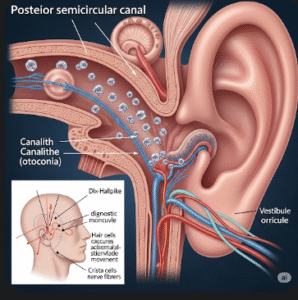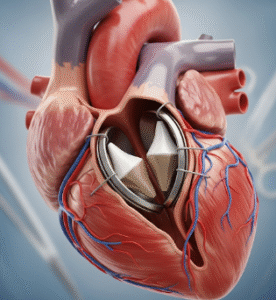Overview
Nausea, commonly described as feeling sick to the stomach, is a frequent symptom experienced by people of all ages. It manifests as an unpleasant sensation in the upper stomach with an urge to vomit. While nausea is often temporary and benign, it can sometimes indicate underlying medical conditions, infections, or complications.
In Korea, healthcare providers carefully evaluate nausea to determine whether it is a minor digestive issue or a symptom of a more serious disease, ensuring appropriate treatment and patient comfort.
Key Facts
➤ Nausea is a common symptom, often preceding vomiting but can occur alone.
➤ It can be acute or chronic, depending on the cause.
➤ Causes range from digestive issues, infections, medications, to systemic diseases.
➤ Persistent nausea may interfere with daily life, hydration, and nutrition.
➤ In Korea, treatment involves diagnosis of the underlying cause, symptom relief, and lifestyle guidance.
What is Nausea?
Nausea is the sensation of unease and discomfort in the stomach, often accompanied by the urge to vomit. It occurs due to activation of the vomiting center in the brain by signals from the gastrointestinal tract, inner ear, or higher brain centers.
➔ Nausea can result from:
- Gastrointestinal irritation (food poisoning, gastritis).
- Medications or toxins affecting the stomach or central nervous system.
- Systemic illness (infection, liver disease, or metabolic disorders).
- Motion or vestibular disturbances causing dizziness and imbalance.
Symptoms Related to Nausea
➤ Queasy feeling in the stomach or upper abdomen.
➤ Loss of appetite or aversion to food.
➤ Sweating, pallor, or salivation.
➤ Dizziness or lightheadedness in some cases.
➤ Vomiting or retching, which may follow the sensation.
➤ Sometimes abdominal discomfort or bloating accompanies nausea.
Causes / Possible Causes
Gastrointestinal Causes
➤ Gastritis, gastroenteritis, or food poisoning – irritation of the stomach lining.
➤ Acid reflux or peptic ulcers – excess stomach acid causing discomfort.
➤ Obstruction or motility disorders – delayed gastric emptying or bowel obstruction.
Neurological Causes
➤ Motion sickness or vertigo – imbalance signals from the inner ear.
➤ Migraines – nausea often accompanies headache.
➤ Increased intracranial pressure – due to head injury or brain tumors.
Systemic and Metabolic Causes
➤ Pregnancy – especially morning sickness in the first trimester.
➤ Medications – chemotherapy, painkillers, or antibiotics.
➤ Infections – viral or bacterial systemic infections.
➤ Metabolic disorders – hypoglycemia, liver or kidney disease.
Psychological Causes
➤ Stress, anxiety, or fear – triggering the central vomiting reflex.
Risk Factors
➤ Pregnant women, especially during the first trimester.
➤ Individuals with migraine history or vestibular disorders.
➤ People taking medications known to cause nausea.
➤ History of gastrointestinal conditions.
➤ Motion-prone individuals susceptible to motion sickness.
➤ Patients with chronic systemic illnesses like kidney or liver disease.
Complications
Persistent or severe nausea may lead to:
➤ Dehydration due to fluid loss from vomiting.
➤ Electrolyte imbalances, affecting heart and muscle function.
➤ Malnutrition if nausea interferes with eating.
➤ Weight loss and fatigue.
➤ Emotional stress and anxiety related to chronic discomfort.
When Should I See My Doctor?
Seek medical attention if:
➤ Nausea is persistent, worsening, or associated with severe vomiting.
➤ Accompanied by abdominal pain, fever, jaundice, or blood in vomit.
➤ There are signs of dehydration, such as dry mouth, dizziness, or reduced urination.
➤ Nausea occurs suddenly with chest pain, shortness of breath, or neurological symptoms, indicating possible serious conditions.
➤ Chronic nausea affects daily activities, nutrition, or quality of life.
Care and Treatment
Lifestyle and Home Measures
➤ Eat small, frequent meals instead of large meals.
➤ Avoid spicy, greasy, or strong-smelling foods.
➤ Stay hydrated, sipping water, herbal teas, or electrolyte drinks.
➤ Rest and avoid sudden movements that may trigger nausea.
➤ Ginger, peppermint, or mild foods like crackers and toast may help relieve symptoms.
Medical Treatments
➤ Antiemetic medications – such as ondansetron or metoclopramide.
➤ Treatment of underlying causes – infections, gastrointestinal disorders, or metabolic issues.
➤ Hydration therapy for severe cases, including IV fluids if needed.
➤ Adjustment of medications causing nausea under supervision.
➤ Behavioral therapy for nausea related to stress or anxiety.
Preventive Measures
➤ Avoid triggers like motion, strong odors, or certain foods.
➤ Maintain good hydration and balanced diet.
➤ For pregnancy, eat bland meals, small snacks, and rest frequently.
➤ Monitor blood sugar levels if diabetic.
Treatment Options in Korea
Korean medical care provides comprehensive evaluation and treatment for nausea:
Diagnostic Services
➤ Detailed medical history and physical examination.
➤ Blood tests to evaluate infections, liver and kidney function, and electrolytes.
➤ Imaging studies – abdominal ultrasound, CT scans, or endoscopy if gastrointestinal causes are suspected.
➤ Specialized assessment for neurological or vestibular disorders.
Therapies and Supportive Care
➤ Prescription antiemetic medications for symptomatic relief.
➤ IV hydration therapy for severe or persistent cases.
➤ Dietary counseling for trigger avoidance and nutritional support.
➤ Treatment of underlying conditions, including gastrointestinal, neurological, or metabolic disorders.
➤ Multidisciplinary care in hospitals or clinics to ensure effective symptom management and patient comfort.
✅ In summary: Nausea, or feeling sick, is a common symptom with diverse causes ranging from minor digestive upset to serious systemic or neurological conditions. In Korea, early assessment, accurate diagnosis, and targeted treatment ensure symptom relief, prevent complications, and maintain overall well-being.













